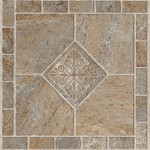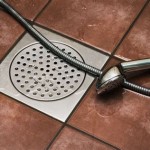White Porcelain Floor Tile: A Timeless and Versatile Bathroom Choice
The bathroom, often considered an oasis of relaxation and personal hygiene, demands careful attention to design and material selection. Among the various flooring options available, white porcelain floor tile stands out as a classically elegant and highly practical choice. Its enduring popularity stems from its aesthetic versatility, durability, and ease of maintenance. This article will delve into the benefits of white porcelain floor tile for bathroom applications, exploring its design potential, functional advantages, and factors to consider during installation.
Porcelain tile, a type of ceramic tile, is distinguished by its high density and low porosity. This is achieved through a manufacturing process that involves firing clay at extremely high temperatures, resulting in a hard, durable material that is resistant to water absorption, staining, and wear. These characteristics make porcelain tile particularly well-suited for the demanding environment of a bathroom, where moisture, temperature fluctuations, and frequent use are commonplace.
White, in particular, offers a clean and minimalist aesthetic that can complement a wide range of bathroom design styles. Its neutrality allows for flexibility in incorporating other colors and textures, making it a versatile canvas for creating a personalized and visually appealing space.
The Aesthetic Advantages of White Porcelain Tile
White porcelain tile presents numerous aesthetic advantages that contribute to its widespread appeal in bathroom design. Its inherent brightness and reflectivity can significantly enhance the perceived size and openness of a bathroom, particularly in smaller spaces. White reflects light, creating a brighter and more airy atmosphere, which is often desirable in a room dedicated to refreshment and hygiene.
Furthermore, white serves as a perfect backdrop for showcasing other design elements within the bathroom. Whether it's colorful accent tiles, vibrant paint colors, or natural wood vanities, white flooring allows these features to stand out and create a cohesive and visually engaging space. It provides a sense of balance and harmony, preventing the bathroom from feeling cluttered or overwhelming.
The versatility of white porcelain tile extends to its ability to adapt to different design styles. It can seamlessly integrate into minimalist, modern, traditional, or even rustic bathroom schemes. In a minimalist bathroom, white porcelain tile can contribute to a clean and uncluttered aesthetic. In a modern bathroom, it can be paired with sleek fixtures and geometric patterns. In a traditional bathroom, it can be combined with classic wainscoting and ornate mirrors. This adaptability makes white porcelain tile a long-term investment, as it can accommodate evolving design preferences over time.
Furthermore, the texture and finish of white porcelain tile can further enhance its aesthetic appeal. Options range from smooth, glossy surfaces to textured, matte finishes. Glossy tiles offer a polished and reflective look, while matte tiles provide a more subtle and slip-resistant surface. The choice of texture and finish depends on the desired aesthetic and the specific functional requirements of the bathroom.
Functional Benefits of Porcelain Tile in the Bathroom Environment
Beyond its aesthetic appeal, white porcelain floor tile offers significant functional benefits that make it an ideal choice for the bathroom. Its inherent durability and resistance to moisture make it a practical and long-lasting flooring option.
As mentioned earlier, porcelain tile is characterized by its low porosity, meaning it absorbs very little water. This is particularly important in a bathroom environment, where spills and moisture are common. Unlike natural stone or porous ceramic tiles, porcelain tile is resistant to water damage, preventing mold and mildew growth, which can pose health risks and compromise the structural integrity of the flooring.
The hardness of porcelain tile also contributes to its durability and resistance to wear and tear. It can withstand heavy foot traffic, impacts, and scratches without showing signs of damage. This makes it a suitable choice for bathrooms that are frequently used or shared by multiple individuals.
Moreover, porcelain tile is easy to clean and maintain. Its smooth, non-porous surface resists staining and dirt accumulation, making it simple to wipe away spills and messes. Regular cleaning with a mild detergent and water is typically sufficient to keep porcelain tile looking its best. This ease of maintenance is a significant advantage for busy homeowners who want a flooring option that requires minimal upkeep.
Another functional benefit of porcelain tile is its thermal conductivity. It readily conducts heat, making it compatible with underfloor heating systems. Underfloor heating can provide added comfort and warmth in the bathroom, particularly during colder months. The combination of white porcelain tile and underfloor heating creates a luxurious and inviting spa-like experience.
Finally, porcelain tile is a relatively inert material, meaning it does not emit harmful chemicals or gases. This makes it a safe and healthy flooring option for individuals with allergies or sensitivities.
Considerations for Installing White Porcelain Tile in a Bathroom
While white porcelain floor tile offers numerous advantages, careful consideration must be given to the installation process to ensure optimal performance and longevity. Proper subfloor preparation is crucial for creating a stable and level surface on which to install the tile.
The subfloor should be clean, dry, and free of any debris or imperfections. Any cracks or unevenness should be repaired before tiling begins. In some cases, a self-leveling compound may be necessary to create a perfectly smooth surface. The type of subfloor material (e.g., concrete, plywood) will also influence the type of underlayment and adhesive that should be used.
The choice of grout color is another important consideration. While white grout can create a seamless and uniform look, it may be more prone to staining and discoloration over time. Darker grout colors can provide a contrast and conceal dirt, but they may also detract from the overall brightness of the white tile. Epoxy grout, which is more resistant to staining and water absorption, is a popular choice for bathrooms.
The size and shape of the tile can also impact the overall aesthetic and functionality of the bathroom. Larger tiles can create a more modern and spacious feel, while smaller tiles can add texture and visual interest. Rectangular tiles can be used to elongate a room, while square tiles can create a more balanced and symmetrical look. The choice of tile size and shape depends on the dimensions of the bathroom and the desired design aesthetic.
Professional installation is highly recommended for ensuring a flawless and long-lasting result. Experienced tile installers have the knowledge and skills to properly prepare the subfloor, apply the adhesive, align the tiles, and grout the seams. They can also address any challenges that may arise during the installation process, such as uneven surfaces or complex layouts. While DIY installation may seem like a cost-saving option, improper installation can lead to problems such as cracked tiles, uneven surfaces, and water damage.
Finally, regular maintenance is essential for preserving the beauty and longevity of white porcelain floor tile. Routine cleaning with a mild detergent and water will help prevent staining and dirt accumulation. It is also important to promptly wipe up any spills to prevent them from penetrating the grout. Sealing the grout can further protect it from staining and water absorption.
In conclusion, the selection of bathroom flooring is a critical decision that impacts both the aesthetics and functionality of the space. White porcelain floor tile offers a compelling combination of timeless elegance, exceptional durability, and ease of maintenance, making it a popular and versatile choice for bathroom applications. Careful consideration of design styles, textures, finishes, installation techniques, and maintenance practices will ensure that white porcelain floor tile delivers a beautiful and long-lasting flooring solution for any bathroom.

Fabricantes E Fornecedores Baratos De Banheiro Piso Porcelana Branca Preço Atacado Hanse

Optic White Matt Stone Effect Porcelain Floor Tile

Can You Use Porcelain Floor Tiles On Shower Walls Expert Advice

Marazzi Archview Cloud White Matte 12 In X 24 Glazed Porcelain Floor And Wall Tile 15 6 Sq Ft Case Ar501224hd1p6 The Home

Belly White Polished Porcelain Tile

Redefine Luxury 10 White Porcelain Tile Bathroom Concepts Stone

Himalaya White Porcelain Floor Tile 45x45cm

Msi Alexandra White 12 In X 24 Matte Porcelain Marble Look Floor And Wall Tile 2 Sq Ft Each Nhdalex12x24 The Home

Bathroom Floor Tiles Hexagon More The Tile Shop

Concrete White Matt Porcelain Wall And Floor Tiles 80x80cm








